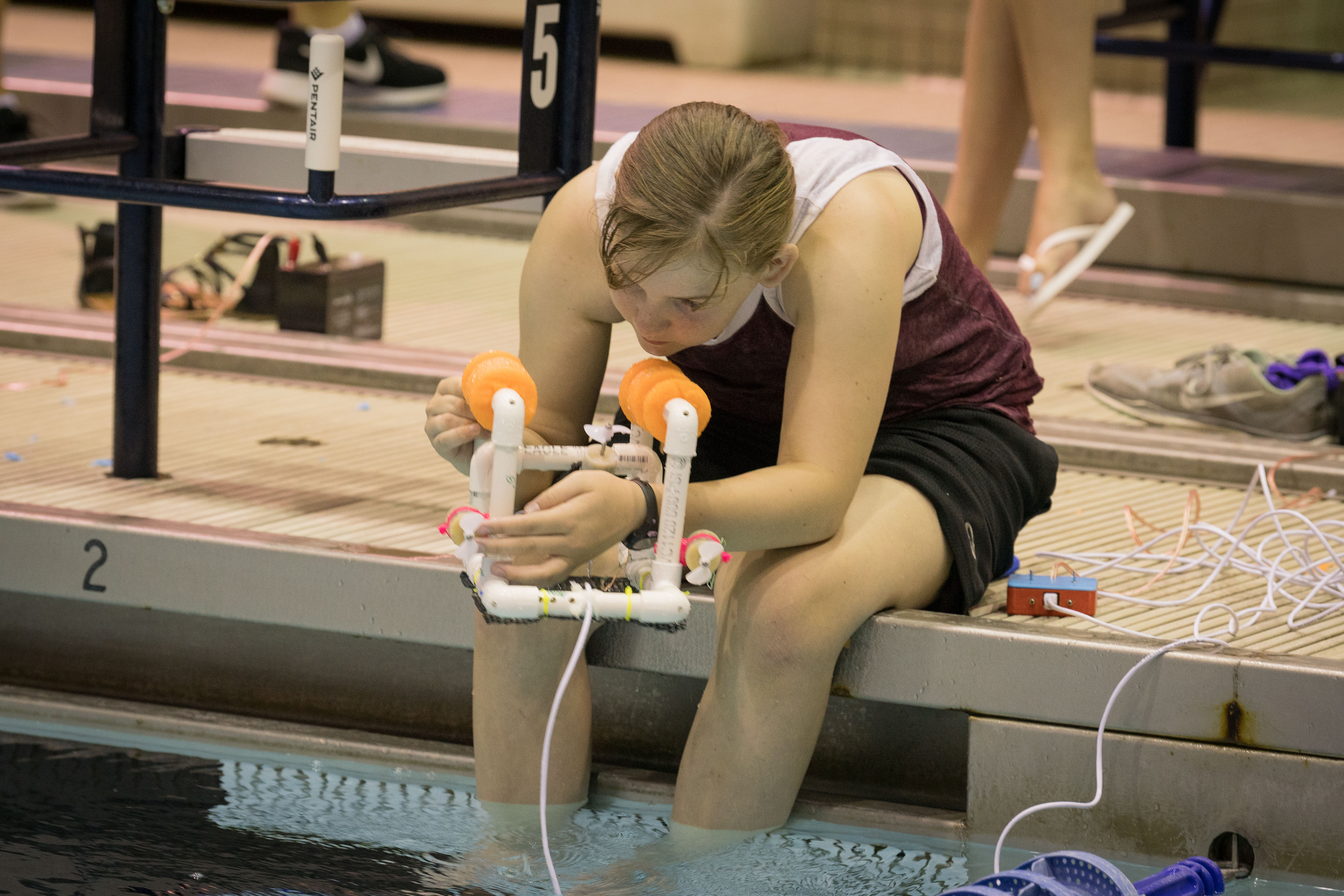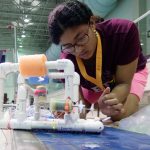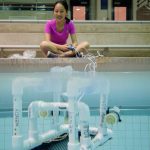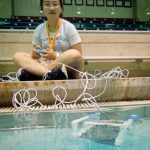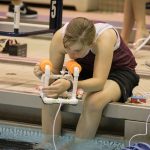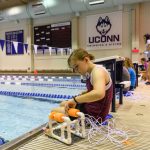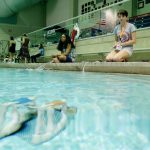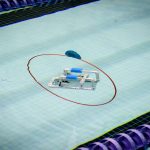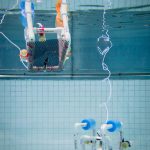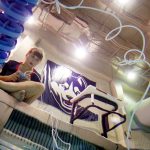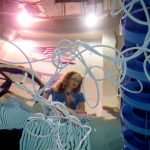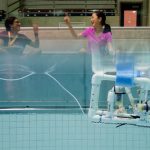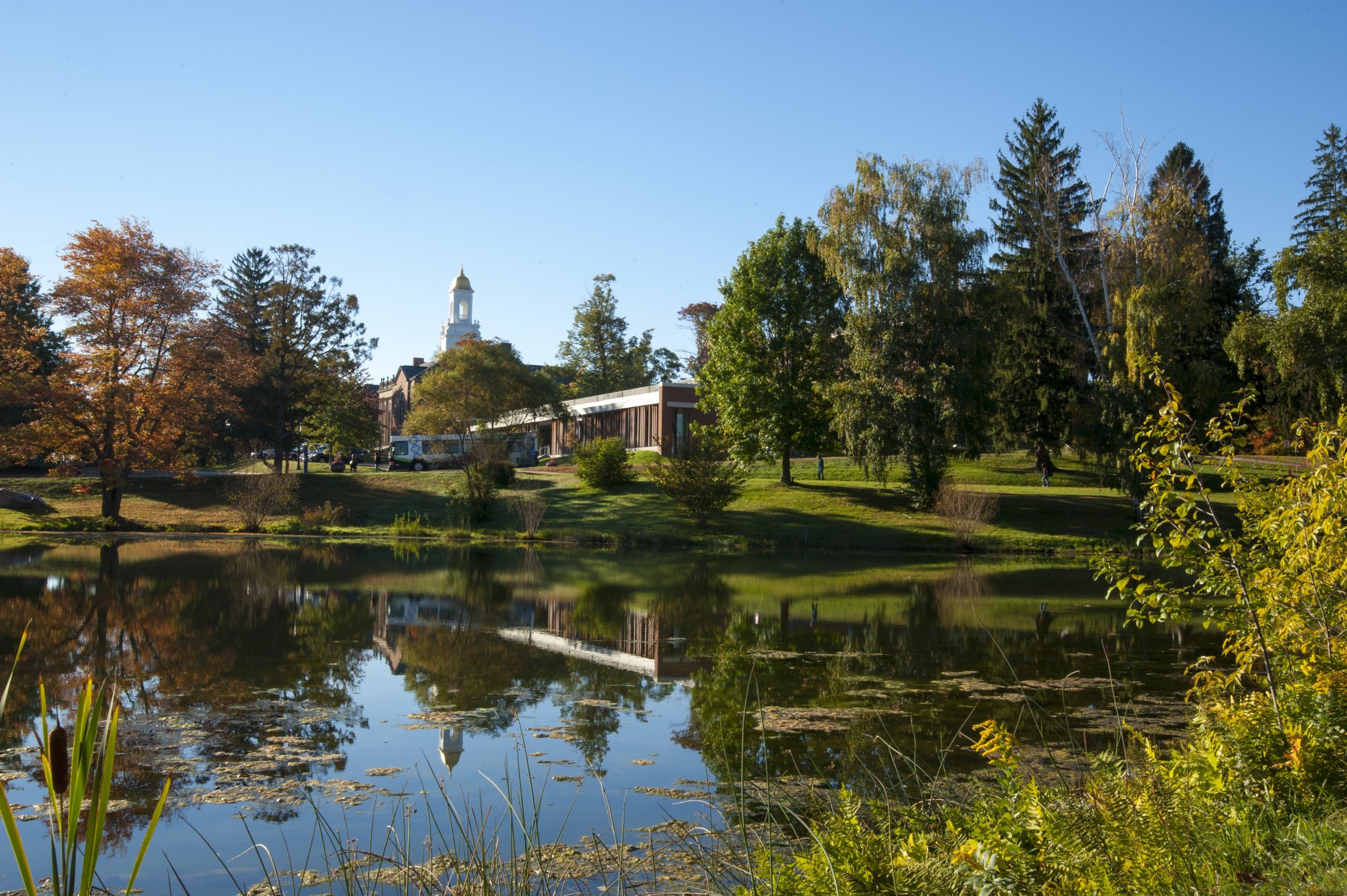The Wolff-Zackin Natatorium at UConn is a hive of activity. Girls from junior high through high school sit at the pool’s edge, some dangling their feet in the water, all focused intently on operating underwater robots using the remote controls in their hands.
They are participants in the Engineering Diversity and Outreach Center’s new SPARK engineering camp for girls, and they built the robots themselves.
“At first I was like ‘I’m going to make that robot?’ But I did it and I’m proud of myself,” says Monica Robinson, a student from Glastonbury who was poolside. “It was overwhelming at first, but I didn’t give up.”
The camp, launched this summer, comprises three, week-long sessions where teens are challenged by creative STEM experiments. It is the outreach center’s mission to develop efforts such as this, that are aimed at increasing student diversity within engineering and other STEM fields.
Programs like these strive to help close the gender gaps that exists in some STEM disciplines, such as engineering and computer science. According to the camp’s website, the presence of women in computer science is now half of what it was in the mid-1980s. The site also notes that the world benefits from a diverse workforce, and cites women’s accomplishments in STEM fields, including practical innovations such as safer airbags in cars.
The SPARK camp also capitalizes on the fact that research has shown girls learn better if they are taught by women. That’s why the participants are taught and mentored by female undergraduate students. And there is evidence that building these skills early, ideally as early as junior high, is important for keeping girls in STEM fields.
“This is our new initiative to reach out to younger female students and promote engineering topics and introduce them to different engineering disciplines,” says Callie Robinson ’19 (ENG), a UConn junior in computer science and engineering, who began the camp with classmate Ashley Leung ’19 (ENG), and Kevin McLaughlin, director of the Engineering Diversity and Outreach Center.
Each week of the new program focused on a different subject area: Week one covered computer coding skills; week two, robotics; and week three, 3-D printing. Participants could join one, two, or even all three sessions.
The program’s development was a learning experience for its creator, too.
Robinson says it was difficult at first to get the word out to teens, given that the camp is new. Existing connections with teachers in some underserved areas of the state helped with outreach. The Engineering Diversity and Outreach Center also offered fellowships, which allowed anyone to consider the camp, regardless of their financial circumstances. Other assistance came in the form of robot kits containing motors and PVC pipes, donated by the SeaPerch program.
“It is a challenge to start up a program like this,” Robinson says. “We’re all undergraduates, and we’re learning a lot as we run it.”
She notes that her own experience as a student in another program run by the Engineering Diversity and Outreach Center, the BRIDGE program, ignited her enthusiasm and desire to spearhead the new camp. “As an incoming student, the BRIDGE program was an amazing, vigorous, program that was a great way to get connected with the professors. It made a big impact for me. I know these diversity and outreach programs have really made an impact on other students too, they can really redirect someone’s life.”
There’s clearly a strong sense of community among the camp’s participants and the group leaders. The leaders help, as the girls tweak and make adjustments to their robots and troubleshoot everything from buoyancy issues to Super Glue mishaps.
Before competing, the girls have a chance to perfect their robots, and this involves a lot of trial and error.
“It’s like what engineering is all about: find the problems and fix them,” explains Wendy Zhang, a student from Woodbridge, who says she hopes to participate in the camp again in the future.
“We’d love it to go forward again next year,” says Robinson. “We want it to continue to grow in numbers like our other programs have. I see a bright future for this program.”
